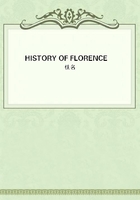
第2章 INTRODUCTION(2)
"Public affairs are easily managed in a city where the body of the people is not corrupt; and where equality exists, there no principality can be established; nor can a republic be established where there is no equality."No man has been more harshly judged than Machiavelli, especially in the two centuries following his death. But he has since found many able champions and the tide has turned. /The Prince/ has been termed a manual for tyrants, the effect of which has been most pernicious. But were Machiavelli's doctrines really new? Did he discover them? He merely had the candor and courage to write down what everybody was thinking and what everybody knew. He merely gives us the impressions he had received from a long and intimate intercourse with princes and the affairs of state. It was Lord Bacon, I believe, who said that Machiavelli tells us what princes do, not what they ought to do. When Machiavelli takes Cesare Borgia as a model, he in nowise extols him as a hero, but merely as a prince who was capable of attaining the end in view. The life of the State was the primary object. It must be maintained. And Machiavelli has laid down the principles, based upon his study and wide experience, by which this may be accomplished. He wrote from the view-point of the politician,--not of the moralist.
What is good politics may be bad morals, and in fact, by a strange fatality, where morals and politics clash, the latter generally gets the upper hand. And will anyone contend that the principles set forth by Machiavelli in his /Prince/ or his /Discourses/ have entirely perished from the earth? Has diplomacy been entirely stripped of fraud and duplicity? Let anyone read the famous eighteenth chapter of /The Prince/: "In what Manner Princes should keep their Faith," and he will be convinced that what was true nearly four hundred years ago, is quite as true to-day.
Of the remaining works of Machiavelli the most important is the /History of Florence/ written between 1521 and 1525, and dedicated to Clement VII. The first book is merely a rapid review of the Middle Ages, the history of Florence beginning with Book II. Machiavelli's method has been censured for adhering at times too closely to the chroniclers like Villani, Cambi, and Giovanni Cavalcanti, and at others rejecting their testimony without apparent reason, while in its details the authority of his /History/ is often questionable. It is the straightforward, logical narrative, which always holds the interest of the reader that is the greatest charm of the /History/.
Of the other works of Machiavelli we may mention here his comedies the /Mandragola/ and /Clizia/, and his novel /Belfagor/.
After the downfall of the Republic and Machiavelli's release from prison in 1513, fortune seems never again to have favoured him. It is true that in 1520 Giuliano de' Medici commissioned him to write his /History of Florence/, and he afterwards held a number of offices, yet these latter were entirely beneath his merits. He had been married in 1502 to Marietta Corsini, who bore him four sons and a daughter. He died on June 22, 1527, leaving his family in the greatest poverty, a sterling tribute to his honesty, when one considers the many opportunities he doubtless had to enrich himself. Machiavelli's life was not without blemish--few lives are. We must bear in mind the atmosphere of craft, hypocrisy, and poison in which he lived,--his was the age of Cesare Borgia and of Popes like the monster Alexander VI.
and Julius II. Whatever his faults may have been, Machiavelli was always an ardent patriot and an earnest supporter of popular government. It is true that he was willing to accept a prince, if one could be found courageous enough and prudent enough to unite dismembered Italy, for in the unity of his native land he saw the only hope of its salvation.
Machiavelli is buried in the church of Santa Croce at Florence, beside the tomb of Michael Angelo. His monument bears this inscription:
"Tanto nomini nullum par eulogium."
And though this praise is doubtless exaggerated, he is a son of whom his country may be justly proud.
Hugo Albert Rennert.
[*] Villari, /Niccolo Machiavelli e i suoi tempi/, 2d ed. Milan, 1895-97, the best work on the subject. The most complete bibliography of Machiavelli up to 1858 is to be found in Mohl, /Gesch. u. Liter. der Staatswissenshaften/, Erlangen, 1855, III., 521-91. See also /La Vita e gli scritti di Niccolo Machiavelli nella loro Relazione col Machiavellismo/, by O. Tommasini, Turin, 1883 (unfinished).
The best English translation of Machiavelli with which I am acquainted is: The Historical, Political, and Diplomatic writings of Niccolo Machiavelli, translated by Christian E. Detmold. Osgood & Co., Boston, 1882, 4 vols. 8vo.